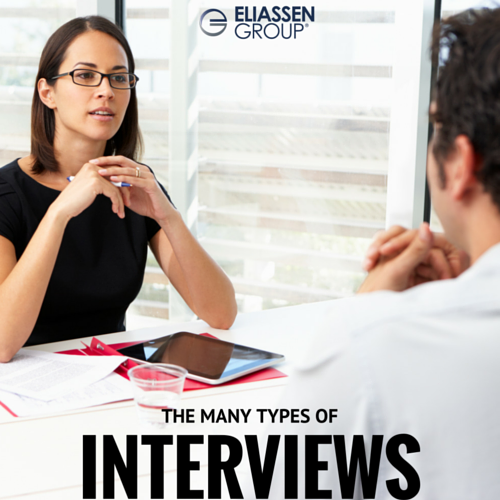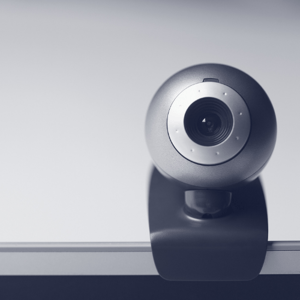Congratulations on landing the interview! It’s a great feeling to know you got the attention of that prospective employer. So, what are you going to do to make sure your skills and talent shine through? You’ve got some work to do – and that needs to happen before, during, and after the job interview!
As a tech staffing firm that’s been in the business for more than 25 years, we spend a great deal of time assisting our consultants with interviewing tips and strategies that help them land key assignments. So, what are our top job interview tips?
APPLYING FOR THE JOB
-
Leverage AI and Automation Tools. Utilize AI-driven platforms to optimize your resume and cover letter. Tools like Jobscan and ResyMatch can help tailor your application to specific job descriptions, increasing your chances of getting noticed.
-
Build a Strong Online Presence. Your LinkedIn profile is your digital business card. Make sure it’s up-to-date, showcases your skills, and includes a professional photo. Engage with industry-related content and join relevant groups to expand your network.
-
Focus on Skill Development. The job market is constantly evolving. Invest in learning new skills or earning certifications in high-demand areas like data analytics, cybersecurity, or digital marketing. Platforms like Coursera, Udemy, and LinkedIn Learning offer a plethora of courses.
-
Network, Network, Network! Attend industry conferences, webinars, and networking events. Don’t be afraid to reach out to professionals in your field for informational interviews. Building relationships can open doors to opportunities that aren’t advertised.
-
Prepare for Virtual Interviews. Virtual interviews are here to stay. Ensure you have a quiet, well-lit space for interviews. Practice common interview questions and familiarize yourself with the video conferencing tools you’ll be using.
PREPARING FOR AN IN-PERSON INTERVIEW
- Conduct a thorough review of the company, its mission, and key initiatives. These days, it’s very easy to locate great information about your potential employers by reviewing their websites, checking out and following their social media accounts, reading press releases and recent news, and even reading company reviews on sites like Glassdoor.
- Review the LinkedIn profiles of each person you will meet with. You can learn a lot about the person, as well as the company, and you also might find a common link or interest. For example, you may have both attended the same college or volunteered for similar community events. But, best of all, knowing and discussing a few key findings will make it obvious to the interviewer that you “did your homework” before showing up.
- Take a trial run. If the company is in a location you are unfamiliar with, you might want to consider a dry run to determine how long it will really take. If it’s in the city and you plan to take public transportation, do you know what the train/subway schedule looks like? If the interview is scheduled for 9:00 am, do you know how much traffic there will be? These might seem like minor details, but you don’t want to risk arriving late because you weren’t prepared.
- Plan to arrive 15 minutes early, but don’t go in until 5 minutes before the interview is scheduled to begin. While it may seem like a good idea to show up really early, this can throw off the schedule and put the interviewer on edge, as he/she might feel compelled to greet you and start the interview early. Unless the company is large and has an extensive corporate security sign-in process, plan on arriving 15 minutes early and then waiting in your car until 5 minutes before the appointment.
- ALWAYS. DRESS. PROFESSIONALLY. In today’s world of tech startups and casual Fridays, we sometimes see candidates who attend job interviews in casual attire. Our advice is to always dress professionally and that sometimes means that you will be more dressed up than your interviewers. This is always preferable to the alternative!
- Leave the coffee and muffins in the car. Don’t bring food and drinks from the morning coffee run into the interview. Keep in mind that most employers will likely offer you water or coffee, so feel free to take them up on that. If you really need to carry a bottle of water, keep it in your bag and have it in between interviews if necessary. We recommend that you wait until afterward to chew that piece of gum or have a mint.
The Interview - Be Engaged!
- DO engage in small talk. It’s very common for interviewers to ask some questions when they first meet you, especially, “Did you find our offices easily?” and “Where are you commuting from?” These questions are asked for a few reasons; first, interviewers often realize that candidates are nervous, so small talk like this is aimed at making you feel a bit more at ease. Second, they want to see that you can carry on a conversation. In addition to learning about your skills, they also want to make sure that, if hired, you will fit in with their company culture and positively interact with your future colleagues. This is particularly important if you are interviewing for a sales role where a large part of your job will involve interacting with clients and prospective customers!
- Shake hands and collect business cards. While these fall into the category of things that might seem obvious, we feel it’s important to point them out. Behaviors that help to show your character, your willingness to engage, and to be detail-oriented cannot be underestimated. And remember that you can use those business cards to jot down a few notes in between interviews so that you can remember key points of the discussion for your follow-up (more on that soon!).
- Don’t just ask generic questions. Hopefully you already realize how important it is to develop a short list of questions for your interviewers. But the key to this is to develop the RIGHT questions and make sure to ask them to the RIGHT people, rather than just asking everyone the same generic things. That said, it might make sense to ask the same thought-provoking question to all of them to get different perspectives. Here are a few that we hear:
- What does this role look like on a day-to-day basis?
- What do you see as being the key challenges that this new hire will face?
- What does growth look like for someone at my career stage here at ABC Company?
- What has your experience been like with the Company?
- Jot down specific notes right after you leave the interview. Before you call your Mom/best friend/boyfriend/girlfriend to tell them how it went, jot down some notes on the backs of those business cards if you haven’t done so already. That way, you’ll have the information to reference when you send your follow-up emails.
Following Up
- Create personalized thank-you emails. It’s extremely important to send a separate email to each person you met with in which you reference something that you discussed during the conversation. While handwritten notes do have a personal touch, things move so quickly in the interview process that you will likely lose out on that follow-up opportunity unless you send off your emails that day or the next morning. Typically, the team members will debrief pretty quickly after the interviews, so the sooner you can send these over, the better the likelihood that this extra step will be recognized and considered.
- Follow up with a phone call. If you don’t hear back with the next steps after two days, it’s a good idea to check in with the recruiter or HR representative. You can also follow that phone call up with an email the same day if you cannot get the person live on the phone. It’s perfectly acceptable to ask about the timeline and the decision-making process so that you know what to expect. Keep in mind, though, that many things come up in the course of business; the recruiter or hiring manager could be traveling, on vacation, or just otherwise engaged. So keep the lines of communication open and stay engaged with the opportunity.
Lastly, remember that the interview process is a two-way street. You are not only being interviewed, but you are also interviewing the prospective employer to make sure that the career opportunity is one that supports your career goals and personal needs and that the company culture is a fit. For this reason, be sure you understand what those factors are and be able to share what’s important to you.
Do you have a tip to add to our list? We’d love to hear it. Visit our LinkedIn, Twitter or Facebook to leave your comments.



